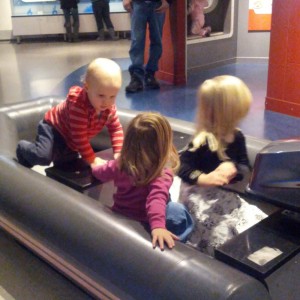I’ve come to the conclusion that what makes us thrive as humans is the connections we have and foster. Our relationships with others, as well as our relationships with ourselves, are what give meaning to our lives.
I’ve been coming to this realization for awhile now, but this idea has become stronger for me while I’ve watched my now 18-month old connect with me and others around him. What has shocked me is how much he has seemed to be “hardwired” to connect with those around him… right from the beginning.
Before he was born, I thought I would have a fairly unresponsive baby that I would eventually relate with. But things happen fast. From day 1 he’d snuggle into our arms and when he’d cry, we’d respond in whatever way we could to try to comfort him and support his needs. Within the first month or two he was making eye contact and at the end of month 1 he was smiling at us. As he grew older he started following gazes, crying when other babies cried, and wanting to be involved in whatever others were doing.
- As early as 7 months, babies can consider the perspectives and needs of others (known as “theory of mind”); this skill is at the centre of human cooperation and empathy (Link to story in Scientific American)
- Before they turn 1 year old babies start reading others’ facial and vocal expressions for cues about what is safe and what is not (known as social referencing – see one story on this phenomenon)
- These skills develop long before we can explain their importance, meaning or impact to our little ones. These skills are inborn.
A recent theory I heard suggests that humans didn’t evolve such big brains to deal with tools or to manipulate the physical environment around us (as other theories have suggested); we developed our mental capacity to deal with our complex web of human relationships. I can remember many walks, even in the early days, when my little one would smile at strangers and get upset when they didn’t see him or smile back… but when their smiles finally came his face would light up. One of the funniest expressions also started appearing at only a month old: the big pouty lip that let us know when he was really upset. We didn’t teach him that, but he was showing that he knew, instinctively, the basis of human communication.
It seems that we’re ‘made’ to build relationships and connect with others. Social connections makes us happy; they brings joy to our lives. From an evolutionary perspective, a lack of social connection not only takes away from our lives but can threaten our very survival.
So what does this mean for peacebuilding? I believe it means that we need to connect; that we want to make people happy; that we are drawn to support positive relationships. We can be taught to exclude and define our social connections within a limited circle; we can learn to see everyone outside of that circle as “others”. But these are learned behaviours and they can be unlearned.
Our need to form social relationships, however, isn’t taught – it’s a part of our fabric. It lays the ground for us to have compassionate connections; for us to listen and respond to one another; and for us to speak peace with those around us.


Recent Comments